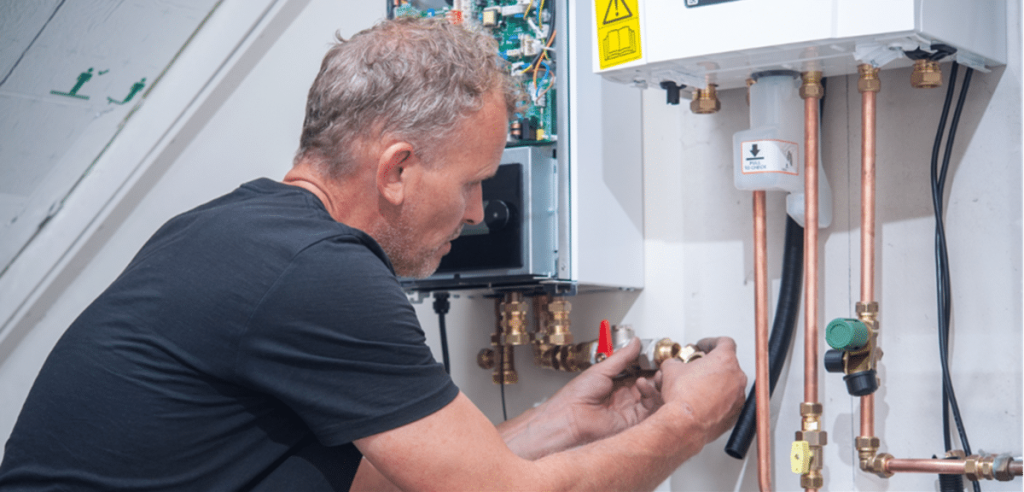How do hybrid air source heat pumps work?How do hybrid air source heat pumps work?

Air source heat pumps are revolutionising the home heating market in the UK, with more and more homeowners choosing to harness the heat energy in the air outside their homes.
Taking in air from the outside, an air-source heat pump will transfer the heat energy into a liquid refrigerant contained within the unit. This liquid will then turn into a gas, be compressed, and then used to fuel the heating systems and hot water within your home.
For those whose heat requirements cannot be fully fulfilled by a heat pump system, hybrid heating could be the perfect solution.
With a hybrid system, you will keep your existing gas or oil boiler alongside your new heat pump which will provide support in times of high demand, during the winter month, for example.
How much do heat pumps cost?
The installation cost of air source heat pumps will typically cost anywhere from £6,000-£12,000 with prices varying by the installer and the type of system you wish to have installed.
A new gas boiler will cost around £4,000 in addition meaning that if you wish to install a hybrid heating system all at once the cost may exceed £15,000.
These numbers can sound daunting but most people who install a heat pump do so alongside their existing boiler instead of installing both at the same time.
As long as your current home heating system is in good working order an air source heat pump can easily be fitted into your system using the exact same pipes and water tank currently fuelled by your boiler alone.
Will I save money on my energy bills?
Absolutely. The question to ask when installing an air source heat pump is not whether you will save money on your heating bills but rather how much you will save.
The price of gas has never been higher and having your own supply of clean energy that requires only a small amount of electrical energy to produce will help take some of the pressure off in these trying times.
Air source heat pumps achieve an impressive energy efficiency rate of 300-400% meaning that for every single unit of electrical energy that you use from the national grid you will generate 3-4 units of heat that can be utilised around your home.
To put this in perspective, a brand new gas combi boiler will achieve about 94% efficiency in the ideal conditions.
It is estimated that you could save as much as 50% on your heating bills by switching to a hybrid heat pump system and as energy prices soar this 50% will be worth more and more over time, significantly reducing the amount of time you will need to wait for savings to exceed the installation cost of your pump.
How loud is an air source heat pump?
Unless your heat pump is being asked to produce energy under difficult conditions such as in the middle of winter, the noise it produces will be minimal.
The noise during normal usage will be no louder than that of your fridge and quieter than the sound of the average gas boiler firing up.
It is very unlikely that your neighbours will hear the noise from your heat pump and it will not disturb activity within your home.
Where does a heat pump go?
No matter how well suited you may be to having a hybrid air source heat pump installed, you still need somewhere to put it.
Luckily, air source heat pumps can be installed pretty much anywhere on the exterior of your home either to a wall on sitting on the ground.
How does hot water work with an air source heat pump?
Your new air source heat pump will not only be able to fuel your home heating system but also the hot water that you use for showers, baths, and washing the dishes.
However, as it takes a bit longer for a heat pump to heat water than a gas boiler does, heat pumps aren’t always able to heat water on demand in the same manner.
This isn’t too much of an issue, it just means that you will need to find somewhere that you can store your hot water until it is required.
This normally takes the form of a hot water cylinder. The size of the cylinder you require will depend on how much water your household uses, but most standard sized containers will be less than 100cm square and fit inside any reasonably cupboard in your home.
If you have a high hot water demand and storing water isn’t an option, there are some hybrid systems that will be able to heat water on demand, but these will cost slightly more to install and may not be viable for some property types.